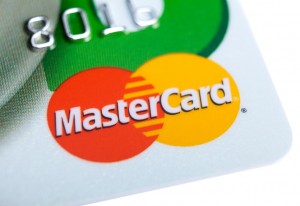The European shows were excellent. I had the pleasure of speaking with businesses from all over the world, with a heavy European concentration. It was great to hear other people's perspectives on the business in general, and their specific interests as they relate to the current environment in particular.
The billing panel in London was moderated by Oystein Wright from MPA3 and it was a very informative session. Clearly, Oystein was very knowledgeable and had done his homework prior to the panel.
One of the main topics was the concept of a Payment Facilitator, a creation by MasterCard. A Payment Facilitator is a company that provides an aggregated merchant account and underwrites merchants within their account. In Visa terms, this is an IPSP. The problem leading up to the creation of this entity is simple, Mastercard, in its current setup, has merchants processing about whom they know nothing. Those merchants are only known by the aggregator.
At the NACHA convention in Baltimore earlier this year, I first heard about this Payment Facilitator model as it was in its development stages. Since that time, it is has appeared in the MasterCard regulations which you can easily find on their website. http://www.mastercard.com/us/merchant/pdf/BM-Entire_Manual_public.pdf#page44
According to the discussions on the London and the Amsterdam panels, although this new concept has been published, it is not yet set in stone. It seems that the aggregators are working with Mastercard to be excused from the rules, or at least to obtain clarification.
What does this Payment Facilitator concept actually mean to the merchant? Firstly, you will still provide the same information for underwriting that you always have provided. Secondly, you will now be registered directly with MasterCard, as you are with Visa when using an IPSP. Thirdly, you will be more transparent to Mastercard in the same ways as you currently are with Visa. Mastercard will now be able to identify each merchant's transactions in the aggregated merchant account, just as Visa can. Fourthly, if you process more than $100,000 in a year on the Mastercard brand, then you will be required to have your own direct merchant account. I believe this is the sticking point for most Payment Facilitators. A hundred thousand dollars in 12 months is not actually a large amount of volume. As a result, the Payment Facilitators would lose a lot of clients to the direct account model as the merchants simply would not use the IPSP model anymore.
As a merchant, you will get better pricing with your direct merchant account, now that you are assuming more of the risk on that account activity. This is actually very good for you because you can operate your business in the way that makes sense for your business and not be bound by the rules of the aggregator who has to manage the risk of their entire portfolio. The services and expertise that the aggregators offer to you are available in the direct merchant account set up as well and you will not have to look far to find them.
It is possible, however, that you really will not see any difference at all in the upcoming months as the aggregators lobbying MasterCard may convince them that this last aspect should be regarded as unfair competition and demonstrated the hardships that the Payment Facilitator will undergo if it comes to pass, jeopardizing their ability to service merchants who are under $100K/year.
One thought that was consistent throughout the panel discussions is that you need to have multiple solutions when it comes to your billing. Redundancy and cascading will ensure that your business is making the most it can from the traffic that you see everyday.



